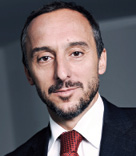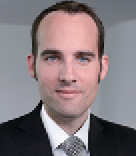In Switzerland, an increasing number of organizations have been offering stem cell therapies for the treatment of a broad range of diseases and conditions including neuro-degenerative diseases, strokes and traumatic brain injuries, diabetes, heart diseases and generic aging conditions. The respective treatments have been used particularly by individuals from Asia, Russia and the Middle East. Last year, Swiss authorities again took action to specify and enforce the legal requirements applicable to stem cell therapies and similar treatments.

菲谢尔律师事务所
知识产权部合伙人、
负责人
Partner and Head of IP Department
VISCHER
Two papers
In 2012, Swissmedic, the Swiss surveillance authority for therapeutic products, issued its first paper on the use of human tissues and cells in the field of aesthetic medicine (Swissmedic Journal, 09/2012).
Swissmedic stated in the paper that products containing human tissues or cells cannot be qualified as cosmetics. Rather, they constitute transplants and are, therefore, subject to the Federal Transplantation Act. If such transplants are turned into products which, or the production process of which, can be standardised, then the transplants must be qualified as “transplant products”. As such, they fall not only under the Transplantation Act, but also the federal Therapeutic Products Act (TPA). The regulation under the TPA is more restrictive than under the Transplantation Act and, among other things, requires stem cell therapies to go through extensive marketing authorization proceedings involving clinical trials.

In April 2015, Swissmedic, together with the Federal Office of Public Health (FOPH), issued a second paper entitled Measures Against Illegal Therapies with Live Cells and with Non-authorized Live-Cell Products (Swissmedic Journal, 03/2015). This second paper is the result of extensive market screening. The reason for issuing a second paper was, according to the authorities, the increasing number of therapies offered in Switzerland and the protection of the country’s reputation as a supplier and exporter of high-quality health services.
The second paper deals, in particular, with human and animal cell extracts (i.e., not containing live cells) used, among other things, for anti-aging and revitalization therapies.
The authorities state that, because no intact cells are being used, such products are to be qualified as medicinal products. Until 2010, based on an ordinance, these products could, under certain circumstances, be qualified as formula magistralis and, therefore, were exempt from the requirement of marketing authorization.
Following the amendment of this ordinance in 2010, the formula magistralis exemption is no longer applicable. Since then, products containing human or animal cell extracts require a full marketing authorization. Authorization is also needed for the import, export and distribution of such products.
Both the 2012 and the 2015 papers are not legally binding, but reflect the practice of Swissmedic and the FOPH. Existing therapies and products using or containing tissues, cells and cell extracts are under scrutiny. The new approach of Swissmedic and the FOPH affects almost all market participants – not only manufacturers, importers, clinics and physicians, but also patients and clients from Switzerland and abroad.
Following an announcement in the 2015 paper, Swissmedic and the FOPH have commenced stringent investigations, including dawn raids on manufacturing premises and clinics. Such investigations are ongoing. If these cases come to court, the two papers will be reviewed and parts of them could be declared void, based on, inter alia, the following reasons:
Swissmedic refers to EU Regulation No.1394/2007 regarding the “standardization” criterion (relevant to the delimitation between transplants and transplant products). According to such regulation, cells or tissues shall be considered “engineered” if they fulfil at least one of the following conditions: (1) the cells or tissues have been subject to substantial manipulation so that biological characteristics, physiological functions or structural properties relevant for the intended regeneration, repair or replacement are achieved; and/or (2) the cells or tissues are not intended to be used for the same essential function or functions in the recipient as in the donor (article 2 and annex I of EU regulation No. 1394/2007).
Multiplication (sub-cultivation) of cells, for example, is qualified as a substantial manipulation and hence, from Swissmedic’s point of view, as the production of transplant products. However, Swissmedic’s referral to EU law itself is questionable.
Switzerland is not a member state of the EU and is therefore not legally bound by EU regulation No. 1394/2007. Swiss law has its own definition of “standardization” (see above). According to the Federal Ordinance to the Transplantation Act – and completely opposite to EU law – the sub-cultivation of cells is qualified as not having a standardization effect.
As outlined above, Swissmedic and the FOPH require a marketing authorization for animal and human cell extracts based on the consideration that, since 2010, these extracts can no longer be qualified as formula magistralis and so cannot make use of the marketing authorization exemption. However, the TPA provides for another exemption applicable to “medicinal products which cannot be standardized” (article 9, paragraph 2).
It can be derived from the relevant legislative materials that “medicinal products which cannot be standardized” include products “the individual packages [of which] differ in terms of composition and quality”. Often, animal and human cell extracts do indeed differ in terms of composition and quality, and can therefore not be standardized, and so should be exempt from the requirement of marketing authorization.
Swissmedic and the FOPH have developed a rather restrictive approach on the regulation of tissues, cells and cell extracts. It is to be hoped that unnecessary restrictions are removed by the courts so that scientifically established therapies and products using or containing tissues, cells and cell extracts are still available for patients.
Schützengasse 1
P.O. Box 1230
8021 Zurich
电话 Tel: +41 58 211 34 00
传真 Fax: +41 58 211 34 10
电子邮件 E-mail:
skohler@vischer.com
fkesselring@vischer.com
fgao@vischer.com
www.vischer.com





















